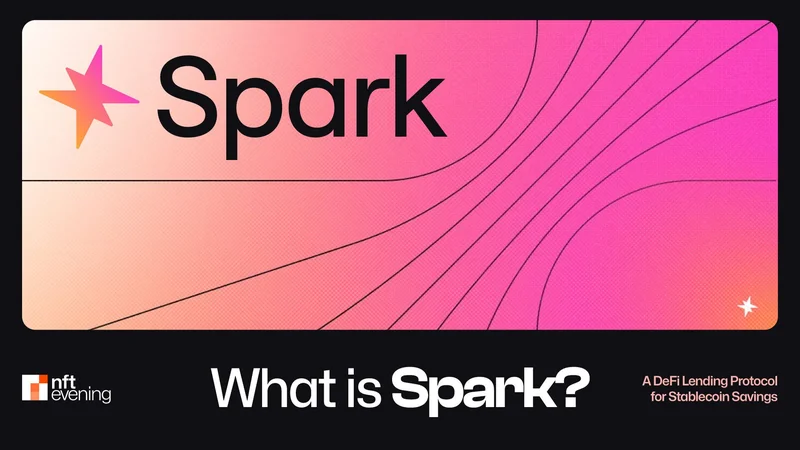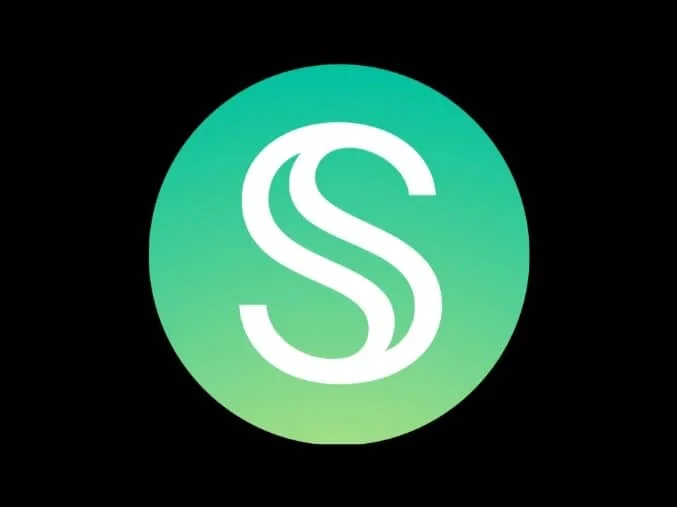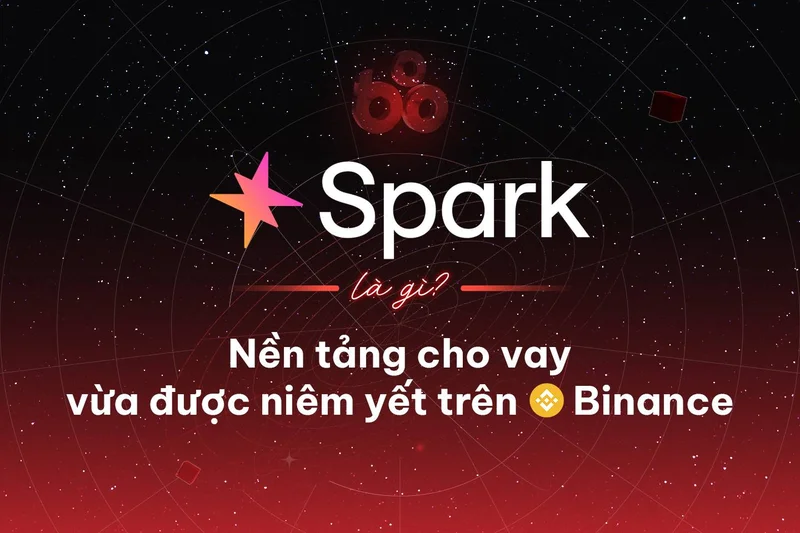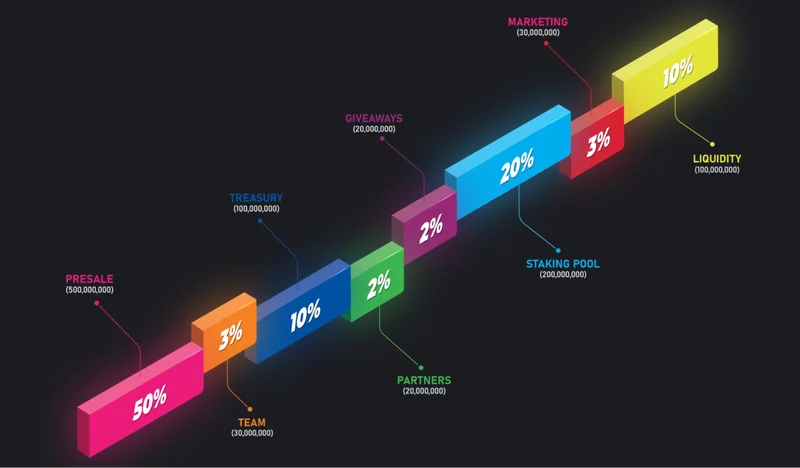The application of blockchain technology is not limited to cryptocurrencies and smart contracts. Many niche sectors are rapidly developing. While these areas are relatively small, they hold immense potential.

Blockchain in Supply Chain Management
Concept: Using blockchain to track a product's entire lifecycle from production to sales, ensuring data transparency and traceability at every step.
Value: Prevent counterfeit goods, enhance supply chain efficiency, and reduce intermediaries.
Typical Applications: Food traceability (e.g., Walmart uses blockchain to track food origins), luxury goods authentication, pharmaceutical supply chain management (e.g., PharmaLedger project).
Benefits: Increase transparency in the product distribution process, ensuring every step from production to sales is traceable. Reduce fraud and optimize supply chain efficiency.
Advantages:
Transparency: Every node in the supply chain has transparent records, allowing participants to review the origin and distribution path of products at any time.
Anti-Counterfeiting: Blockchain's immutable records effectively prevent counterfeit goods, especially for high-value items such as luxury goods and pharmaceuticals.
Efficiency Improvement: Reduce manual paperwork and intermediaries, increase processing efficiency, and save time and costs.
Blockchain Identity Management (Self-Sovereign Identity, SSI)
Concept: Blockchain technology enables users to control their own identity information without relying on centralized third-party institutions.
Value: Protect users' sovereignty over their personal data while avoiding data leaks and privacy violations.
Typical Applications: Decentralized identity platforms like Civic and uPort, used for identity verification, passwordless login, and KYC (Know Your Customer) processes.
Benefits: Individuals control their identity information, avoiding dependence on centralized identity verification agencies, improving privacy and data security.
Advantages:
Privacy Protection: Users control their own data, with only authorized third parties able to access specific information.
Cross-Platform Authentication: The same identity can be used across multiple platforms and services, reducing the hassle of repeated registration and authentication.
Data Security: Encryption technology protects identity data, preventing identity theft and data breaches.
Blockchain and the Internet of Things (IoT)
Concept: Combining blockchain with IoT to securely manage data transmission and communication between IoT devices.
Value: Provide a more secure data transmission channel, reduce trust issues between devices, and prevent single points of failure.
Typical Applications: Projects like IOTA and VeChain, mainly used for secure communication in smart cities, supply chains, and smart home devices.
Benefits: Provide secure communication and data sharing channels for IoT devices, reduce trust issues between devices, and prevent single points of failure.
Advantages:
Security: Blockchain offers decentralized and encrypted data transmission methods, preventing data tampering and device hijacking.
Automation and Smart Contracts: Devices can autonomously operate and trigger pre-set actions through smart contracts without human intervention.
Decentralized Management: Does not rely on centralized servers, enhancing network fault tolerance and reliability.
Blockchain Gaming (GameFi)
Concept: Combining gaming and finance, integrating blockchain with virtual economies where players can earn cryptocurrency or NFTs through the Play-to-Earn model.
Value: Allow players to truly own virtual assets and monetize them through blockchain marketplaces.
Typical Applications: Axie Infinity, Decentraland, and The Sandbox, centered on virtual assets and NFTs on the blockchain.
Benefits: Players earn cryptocurrency and virtual assets through games, genuinely owning in-game virtual property, fostering a win-win relationship between players and game developers.
Advantages:
Asset Ownership: Players gain ownership of virtual assets through NFTs and cryptocurrency, which can be traded or monetized across platforms.
Decentralized Economy: The in-game economy is transparent and decentralized, avoiding manipulation by game developers in traditional games.
Community-Driven: Players can participate in game development decisions through voting or holding governance tokens, strengthening community engagement.
Decentralized Finance Insurance (DeFi Insurance)
Concept: Providing decentralized insurance services through blockchain and smart contracts.
Value: Reduce intermediaries, lower insurance costs, and increase transparency.
Typical Applications: Nexus Mutual, Etherisc, allowing users to purchase insurance for cryptocurrency losses or events like weather and flight delays.
Benefits: Insurance agreements are automatically executed via smart contracts, reducing intermediaries and complex claim processes.
Advantages:
Disintermediation: Reduces fees by eliminating the need for traditional insurance companies, lowering insurance costs for users.
Transparency and Automation: All insurance terms and executions are transparently conducted on the blockchain, with claims automatically triggered by smart contracts.
Globalization: Users can participate in decentralized insurance regardless of location, transcending traditional insurance's geographical limitations.
Blockchain Copyright Management and Art Authentication
Concept: Recording copyright information of works on the blockchain to ensure originality and track ownership and transaction records.
Value: Artists can verify the authenticity of their works, prevent plagiarism and infringement, and ensure transaction transparency.
Typical Applications: NFT (Non-Fungible Token) marketplaces like OpenSea and Rarible, used for copyright protection and trading of art, music, videos, etc.
Benefits: Guarantee the authenticity and ownership of works through blockchain, prevent infringement, and facilitate the buying and selling of works.
Advantages:
Immutable Copyright: Copyright information for art, music, literary works, etc., is recorded on the blockchain, preventing tampering and piracy.
Ownership Tracking: Blockchain tracks ownership transfers with every resale or transaction, ensuring legality.
Direct Profit: Artists can bypass traditional intermediaries and gain revenue directly from sales and secondary sales.
Blockchain Energy Management
Concept: Using blockchain to manage energy production, distribution, and trading, particularly in renewable energy markets.
Value: Increase transparency and efficiency in energy markets, allowing users to conduct peer-to-peer energy transactions directly, reducing intermediary fees.
Typical Applications: Power Ledger, LO3 Energy, allowing users to sell or buy excess solar or other forms of renewable energy on the blockchain.
Benefits: Facilitate peer-to-peer energy trading through blockchain, enhancing the efficiency of energy distribution and usage, especially in renewable energy.
Advantages:
Peer-to-Peer Trading: Users can sell or buy electricity directly on the blockchain, avoiding fees from traditional energy suppliers.
Energy Traceability: Ensures the transparency and reliability of renewable energy sources, supporting the spread and promotion of green energy.
Waste Reduction: Optimizes energy usage through real-time data and smart contract management, reducing waste.
Blockchain Healthcare Data
Concept: Using blockchain to record, store, and share patients' medical records, prescriptions, and other information while ensuring privacy and data security.
Value: Decentralized management of healthcare data gives patients more control over their data and significantly improves data security.
Typical Applications: MedRec, BurstIQ, PharmaLedger for secure sharing of health data, drug tracking, and medical data management.
Benefits: Securely manage and share patient medical data, giving patients more control over their data while ensuring privacy and integrity.
Advantages:
Data Privacy: Patients manage and control their health data through private keys, with only authorized medical institutions granted access.
Interoperability: Increased interoperability between different healthcare institutions, avoiding data silos and ensuring consistent treatment across multiple hospitals.
Transparent and Traceable: All access and modifications to medical data are traceable, enhancing transparency in data management.
Decentralized Prediction Markets
Concept: Blockchain-based prediction markets where users participate by predicting the outcomes of events.
Value: Improve transparency and fairness through decentralized market models while reducing the risk of manipulation and data tampering.
Typical Applications: Augur, Gnosis, and other decentralized platforms where users participate in event predictions such as elections, sports games, or financial markets.
Benefits: Provide decentralized prediction platforms, reducing reliance on centralized institutions, increasing fairness and transparency.
Advantages:
Transparency: All participants can access the market and event data, reducing the risk of manipulation or insider trading.
Fairness: Blockchain ensures a decentralized and impartial prediction process, avoiding central manipulation.
Global Participation: Users worldwide can join prediction markets, broadening the scope and diversity of participants.
Blockchain in Social Media
Concept: Combining blockchain and social media to give users more control over their content and data, while preventing censorship.
Value: Decentralized social media platforms allow users to own and monetize their content directly without platform interference or censorship.
Typical Applications: Steemit, Minds, and decentralized social media platforms, where users can earn tokens by posting content and participating in communities.
Benefits: Enhance user ownership of content, reduce platform control, and prevent censorship.
Advantages:
Content Ownership: Users own their content and can earn cryptocurrency by creating valuable content.
Censorship Resistance: Content on decentralized platforms is less prone to deletion or censorship, preserving freedom of expression.
Community Autonomy: Communities can establish their own rules and governance systems through decentralized voting and governance tokens.
FAQ
Q: How does blockchain improve supply chain sustainability?
A: Blockchain enables supply chain transparency by tracking every step of a product’s journey from the source to the consumer. By recording the origins of raw materials, production processes, and transportation routes, companies can ensure compliance with sustainability standards, reducing environmental impact. At the same time, consumers can verify a product’s sustainability through blockchain, promoting eco-friendly consumption.
Q: What is the potential of blockchain technology in social media?
A: In the realm of social media, blockchain can be used to build decentralized platforms where users have full control over their content and data, preventing large platforms from monopolizing information. Through smart contracts, users can directly earn from content creation, boosting creators’ motivation and encouraging the production of high-quality content.
Q: How can blockchain enhance trust in charitable donations?
A: Blockchain technology can bring transparency to the flow of charitable funds, allowing donors to track how their contributions are used in real-time and ensuring they are allocated to intended projects. This transparency reduces the risk of misuse and fraud, increasing public trust in charitable organizations and encouraging more people to participate in philanthropy.
Q: How does blockchain ensure privacy protection in the healthcare sector?
A: Blockchain stores medical data in a decentralized manner, allowing patients to manage their health information through private keys and grant access only to authorized medical institutions. This approach enhances patient control over their data, reduces the risk of data breaches, and improves the security and privacy of medical information.
Q: What are the advantages of the economic model in decentralized prediction markets?
A: Decentralized prediction markets leverage blockchain technology to establish a transparent and fair platform where users can place bets based on their knowledge and judgment. This model uses smart contracts to automatically execute transactions and rewards, minimizing the chance of human intervention and ensuring the fairness and accuracy of market outcomes, which attracts more participants.
Related Articles

What is SparkLend? A Beginner-to-Advanced Guide to Decentralized Lending Made Easy
SparkLend is a decentralized, non-custodial liquidity market protocol built on the Ethereum blockchain. Simply put, it functions like a bank without intermediaries, allowing users to borrow and lend d
June 26, 2025
What is sUSDS? How Do I Acquire sUSDS?
This guide will walk you through Sky Savings’ sUSDS and sUSDC—your gateway to earning yield with stablecoins while keeping your funds secure.Sky Savings: Your Journey to Stablecoin Yields Begins HereW
June 26, 2025
What is SparkLend? A Complete Guide from Beginner to Pro
SparkLend is a decentralized, non-custodial liquidity market protocol that allows users to participate as lenders or borrowers. Lenders provide liquidity to earn passive income, while borrowers can ta
June 24, 2025
What Exactly Does Spark Protocol Do? A Complete Guide
This guide will walk you through Spark Protocol — an innovative platform designed to tackle the long-standing issue of fragmented liquidity in the DeFi space. You'll learn how to earn yield, borrow as
June 24, 2025
RXS Token Trading Guide: From Presale to Uniswap – A Complete Walkthrough
This guide will walk you through the trading process of the RXS Token, from the restrictions during the presale phase to free trading on Uniswap, helping you trade securely and efficiently.1. Introduc
June 24, 2025
